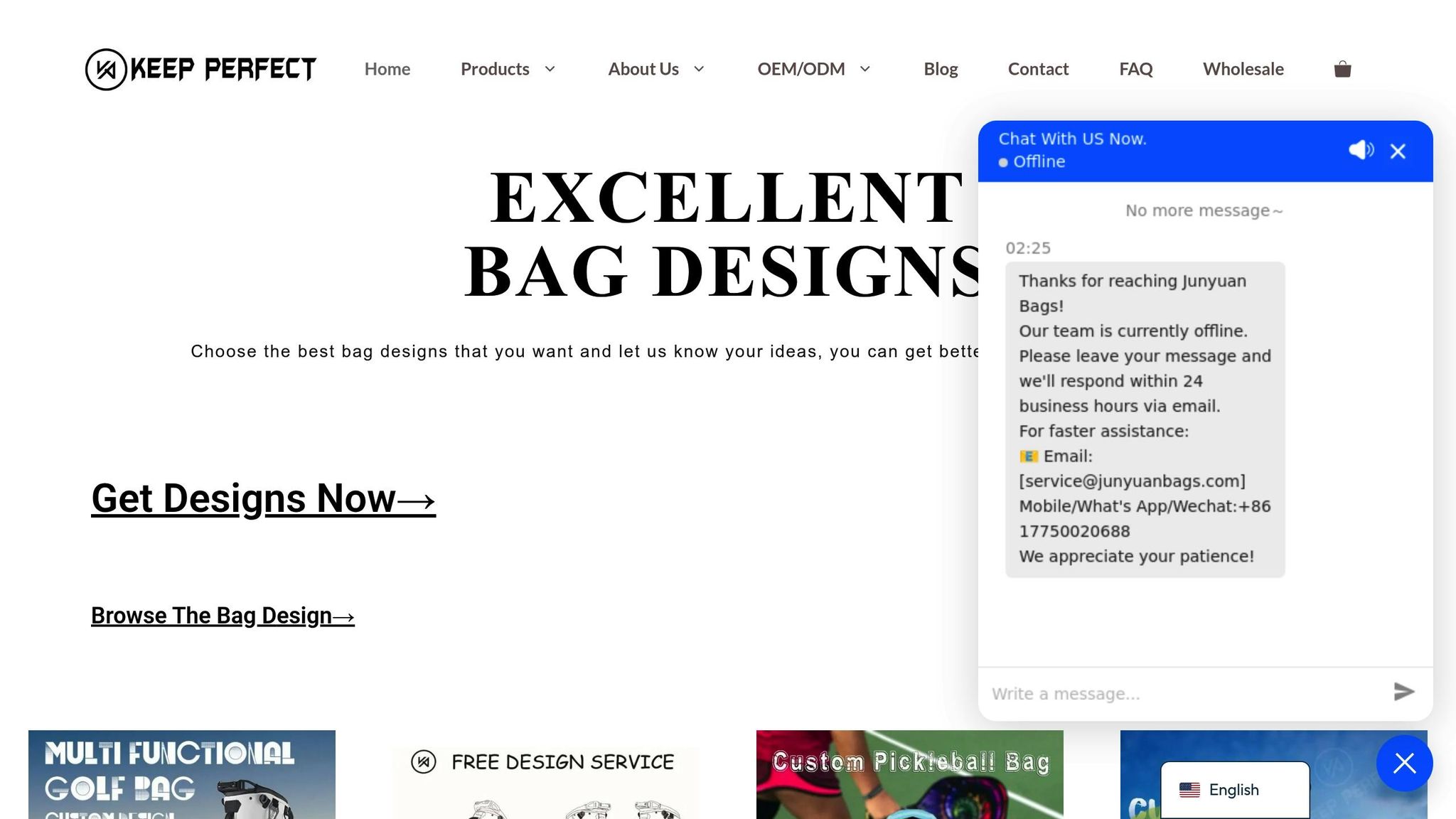In custom golf bag manufacturing, the minimum order quantity (MOQ) typically starts at 50–100 units, though it can go as high as 500–1,000 units for advanced designs or premium materials. Here’s what influences these numbers:
- Design Complexity: Simple designs with basic features have lower MOQs, while intricate patterns, multi-color embroidery, or detailed graphics increase the requirement.
- Material Choice: Standard materials like nylon or polyester lower MOQs, while premium options like PU leather or eco-friendly fabrics push them higher.
- Customization Level: Custom hardware, unique compartments, or tailored colors add production challenges, raising MOQs.
If you’re looking to negotiate lower MOQs, simplify your design, choose standard materials, or align your order timing with off-peak production periods. For smaller-scale needs, some manufacturers like JUNYUAN BAGS offer flexible terms starting at 100 units, with sample runs available for testing designs before committing to full production.
Custom Leather Golf Bags | Premium OEM & Wholesale by Szoneier
Standard MOQ Requirements for Custom Golf Bags
When planning custom golf bag orders, understanding MOQ (Minimum Order Quantity) requirements is crucial. These requirements can vary based on the product’s design and the manufacturer’s production capabilities. Here’s a look at the typical MOQ figures in the industry.
Common MOQ Numbers for Golf Bags
Many manufacturers set a 100-piece minimum for custom golf bags. This can work well for smaller brands, golf clubs, or tournament organizers that don’t require large quantities. On the other hand, some suppliers offer no MOQ, providing greater flexibility for those with smaller-scale needs.
Since MOQ policies can differ widely, it’s essential to confirm the specifics with your manufacturer to ensure they align with your production goals and budget.
What Affects MOQ: Design, Materials, and Custom Options
When ordering custom golf bags, several factors come into play that can significantly influence the minimum order quantity (MOQ). By understanding how design, materials, and custom features affect production, you can better plan your budget and order specifications.
How Design Complexity Affects MOQ
The complexity of your golf bag’s design has a direct impact on MOQ:
- Simple designs, such as single-color bags with minimal customization – like a logo embroidered on one panel – are easier to produce. These typically allow for lower MOQs since they require less setup and fewer production adjustments.
- Complex designs, on the other hand, demand higher MOQs. Features like multi-color patterns, intricate embroidery with multiple thread colors or 3D effects, and detailed graphics increase production challenges. For example, ensuring pattern alignment across different bag panels often leads to more material waste and additional setup time, driving up MOQ requirements.
Next, let’s look at how your choice of materials can further influence MOQ.
Material Choices and Their Impact on MOQ
The type of material you select for your golf bags is another critical factor:
- Standard materials like nylon or polyester are widely available and easier to work with, supporting lower MOQs.
- Premium materials, such as PU leather, waterproof canvas, ripstop nylon, or eco-friendly fabrics, tend to increase MOQ. These materials are more expensive, often require special ordering, and may involve unique manufacturing processes.
- Mixed material designs, such as combining PU leather with nylon, add another layer of complexity. Coordinating between different material suppliers and managing specialized assembly techniques typically results in higher MOQ requirements.
Finally, customization options can also play a big role in determining MOQ.
Custom Features That Increase MOQ
Adding custom features to your golf bags introduces additional production complexities, which often raise MOQ thresholds:
- Hardware customization, like branded zippers, buckles, or metal fittings, requires sourcing from specific suppliers who may have their own minimum order requirements.
- Color matching to achieve specific brand colors can also increase MOQ. This process involves dye coordination, approvals, and additional setup time.
- Functional enhancements, such as extra pockets, unique compartments, or customized strap designs, require changes to patterns and assembly processes, further raising production demands.
- Custom packaging – including branded boxes, tissue paper, or other packaging materials – often comes with its own minimum order requirements, which can also influence the overall MOQ for your order.
sbb-itb-1e6451b
How to Negotiate Better MOQ Terms with Manufacturers
Getting manufacturers to agree to lower minimum order quantities (MOQs) can be the deciding factor in whether your custom golf bag project gets off the ground. The secret lies in understanding their production needs and finding ways to align your order with their workflow.
Simplify Designs and Materials to Reduce MOQ
A straightforward way to negotiate lower MOQs is by simplifying your design. Opting for standard materials and uncomplicated designs makes it easier for manufacturers to handle smaller orders without disrupting their production process.
For example, consider using commonly stocked materials like nylon or polyester that manufacturers already have in inventory. These materials don’t require special orders or extended lead times, which makes smaller production runs more manageable. Additionally, sticking to a single color or minimal customization can further reduce setup time and complexity, making it more appealing for manufacturers to accept your order.
When suggesting these design changes, present them as ways to save costs and improve efficiency for both sides. This approach shows that you’re mindful of the manufacturer’s needs, which can help you negotiate better terms.
Adjust Order Timing for Better Deals
Beyond simplifying your design, timing your order strategically can also improve your chances of securing lower MOQs. Manufacturers tend to be more flexible during off-peak periods, such as late fall or winter, when demand is typically lower.
Another useful tactic is coordinating your production timeline with other orders. Known as combined ordering, this method allows your order to be grouped with others, reducing costs for the manufacturer. If you’re flexible with delivery timelines, this can be a win-win for both parties.
Additionally, expressing a commitment to future orders can strengthen your position. If you can outline a plan for ongoing business or larger future orders, manufacturers may be more open to offering smaller trial runs. This not only helps you secure lower MOQs but also builds goodwill for a long-term partnership.
Leverage Sample Runs and MOQ Exceptions
If reducing MOQs through design and timing adjustments isn’t enough, consider exploring sample runs as an alternative. Many manufacturers offer prototype or sample production services, which can serve as a way to test your product without committing to a high MOQ.
When requesting sample runs, frame them as part of your market validation process. Keep in mind that these runs often come with higher per-unit costs and different MOQ rules. While the price may be steeper, it could still be worth it for market testing or an initial launch.
Be prepared to pay a premium if you’re asking for an MOQ exception, as manufacturers usually charge more to offset the inefficiencies of smaller production runs. Carefully assess whether these costs align with your business goals and budget.
Finally, make sure any agreements for sample runs clearly outline the terms. Specify that these are not full-scale production orders and clarify any differences in quality or delivery timelines. This prevents misunderstandings and ensures a smooth relationship with the manufacturer, giving you more flexibility to move forward with your custom golf bag project.
JUNYUAN BAGS: MOQ Policies and Custom Golf Bag Process

JUNYUAN BAGS takes an accommodating approach to minimum order quantities (MOQs), making it easier for both small businesses testing new ideas and established brands scaling up production to find the right fit.
JUNYUAN BAGS MOQ Requirements
The company’s MOQs depend on the complexity of the design and level of customization. For custom golf stand bags, the minimum order starts at just 100 pieces – a notable advantage compared to competitors who often require 500 to 1,000 units. Here’s the pricing breakdown:
- 100–999 units: $65.99 each
- 1,000–9,999 units: $64.99 each
- 10,000–99,999,999 units: $60.99 each
- 100,000,000+ units: $49.99 each.
While projects with extensive customization may require higher MOQs due to setup and tooling costs, simpler modifications – like logo updates or color changes – can lower the minimum order. Material choice also plays a role: premium options like PU Leather or RPET typically require larger orders, while standard materials such as Premium Nylon or Oxford Fabric allow for smaller MOQs.
JUNYUAN BAGS Services and MOQ Benefits
To ease the challenges of meeting MOQs, JUNYUAN BAGS offers a range of services designed to support businesses at every stage. Their sample creation service, priced between $250 and $300 [6,7], lets you evaluate the design and quality before committing to a full production run. For those in a hurry, the "Custom design in 3 days" service speeds up the initial design phase, while a more detailed design planning process – lasting 1 to 2 weeks – ensures every specification is fine-tuned before production begins.
As an OEM/ODM manufacturer, JUNYUAN BAGS covers everything from the initial concept to final shipping. They even offer some flexibility for orders below standard MOQs by coordinating production schedules.
Customization options are plentiful, including woven labels, silk printing, leather patches, embroidery, and metal emblems. Even smaller orders can produce standout, high-quality products. Plus, the significant cost savings across larger quantity tiers make bulk orders a more economical choice, reducing the cost per unit substantially.
MOQ Summary and Action Steps
Grasping the concept of MOQs (Minimum Order Quantities) is key to making choices that fit both your budget and business goals. In the custom bag industry, MOQs can differ significantly, as they depend on factors like production efficiency, order size, and design needs. Things like intricate designs, material types, and the level of customization all play a role in determining these minimums. Here’s how you can align your orders with your objectives:
Start by assessing your budget, timeline, and all associated costs, including unit prices, sample fees, and any personalization expenses. Ordering in bulk often lowers the cost per unit, so it’s worth discussing volume discounts with manufacturers to secure better pricing.
Always request samples to check the quality of the product and make any necessary adjustments to your design. JUNYUAN BAGS, for example, provides design services tailored to your project’s complexity, giving you the chance to test and refine your ideas before committing to large orders.
If you’re entering a new market or trying out a fresh design, consider placing smaller initial orders. This approach helps you gauge customer demand while minimizing financial risks. Additionally, talk to manufacturers about your production timeline – if you plan for multiple future orders, they might be open to more flexible MOQ terms.
Finally, don’t overlook production lead times when planning your orders. Custom golf bags, for instance, often require several weeks to produce. Planning ahead ensures you meet deadlines and avoid last-minute decisions that could result in less favorable MOQ conditions.
FAQs
What are some effective ways to negotiate lower minimum order quantities (MOQs) with custom golf bag manufacturers?
To work out lower MOQs with custom golf bag manufacturers, start by fostering a solid relationship and being upfront about your requirements. Clearly outline your production goals and show that you’re a potential long-term partner. This can make manufacturers more open to adjusting their terms.
You might also consider compromises, like agreeing to pay a slightly higher price per unit or placing a smaller trial order. These approaches can help cover the manufacturer’s setup costs. Plus, if you take the time to understand their challenges – whether it’s material sourcing or production processes – you can suggest flexible terms that meet both your needs and theirs.
Negotiating with a cooperative attitude and keeping the manufacturer’s perspective in mind increases your chances of striking a deal that works for both sides.
What are the pros and cons of using premium materials for custom golf bags?
Choosing high-quality materials for custom golf bags comes with several perks. These materials tend to be more durable, offer better protection against the elements, and give your bag a polished, upscale appearance. Not only can this extend the life of your bag, but it also ensures you’ll turn heads on the course. For those who value both performance and style, it’s an investment that can reflect your personal taste or enhance your brand image.
That said, there are a few trade-offs to think about. Higher-end materials often come with a steeper price tag, which might not suit every budget. Plus, some of these materials can increase the bag’s weight, making it less convenient to carry around. Striking the right balance between durability, style, and cost is key when selecting the perfect materials for your custom golf bag.
How does the timing of my order affect the MOQ and production process for custom golf bags?
Timing your order plays a crucial role in determining the minimum order quantity (MOQ) and the overall production process for custom golf bags. If you order during peak seasons or require a quick turnaround, manufacturers might set higher MOQs or tack on extra fees for expedited production. This can also stretch out lead times, making the process less efficient.
However, placing your order well in advance can make a big difference. Manufacturers are often more willing to work with lower MOQs – sometimes just a handful of units – and can manage production schedules more effectively. Early planning not only helps you avoid rush fees but also ensures smoother processing, especially if your design is intricate or requires unique materials. Thoughtful timing can help you cut costs and keep delivery on track.




 Mobile/What's App/Wechat
Mobile/What's App/Wechat E-Mail
E-Mail ADD
ADD




